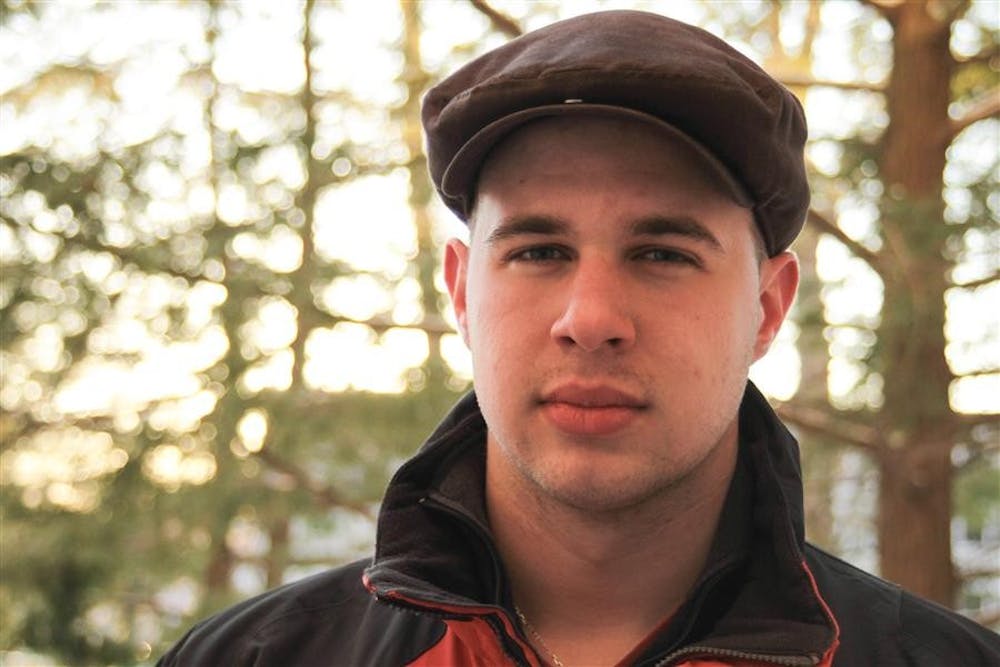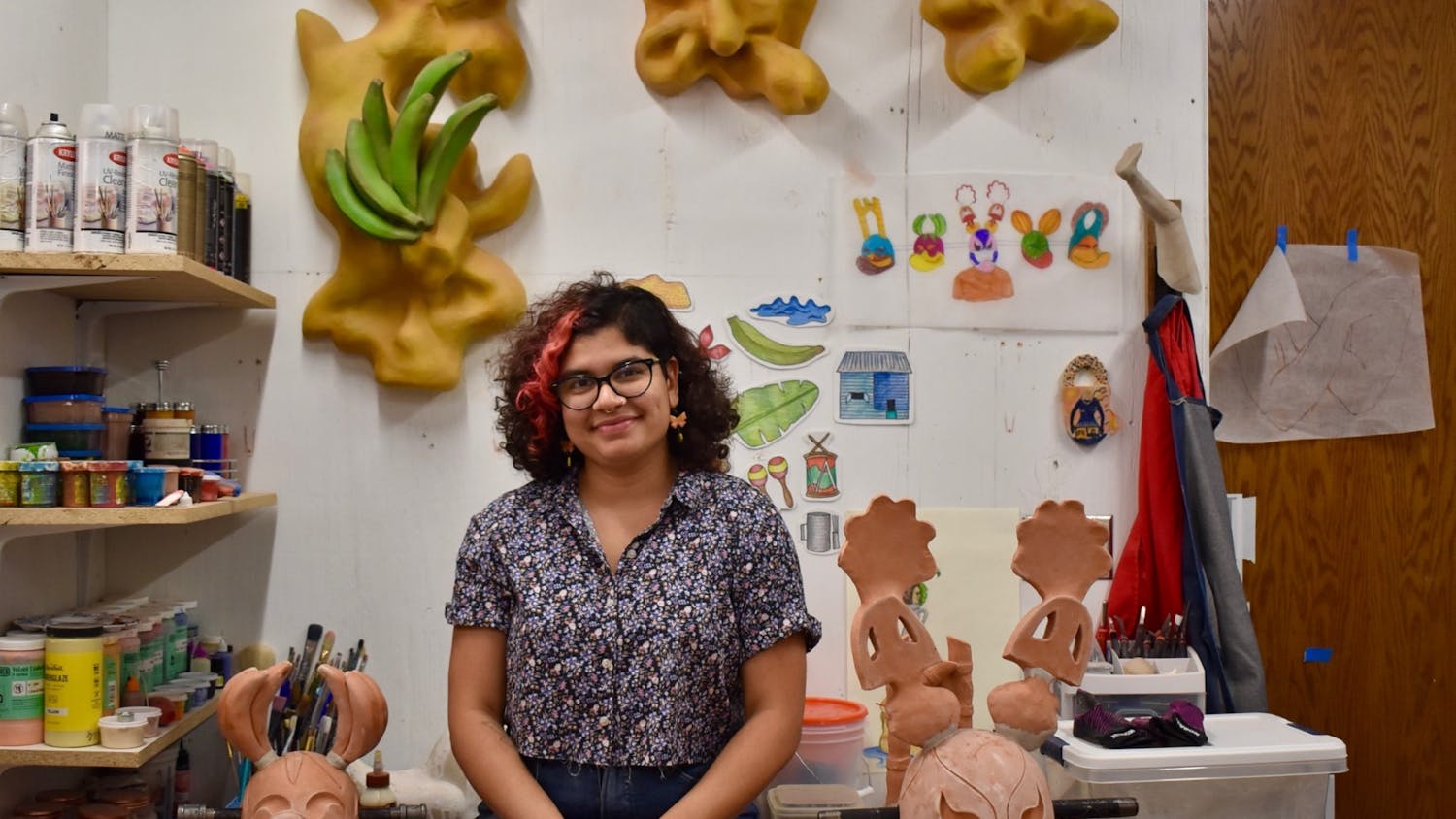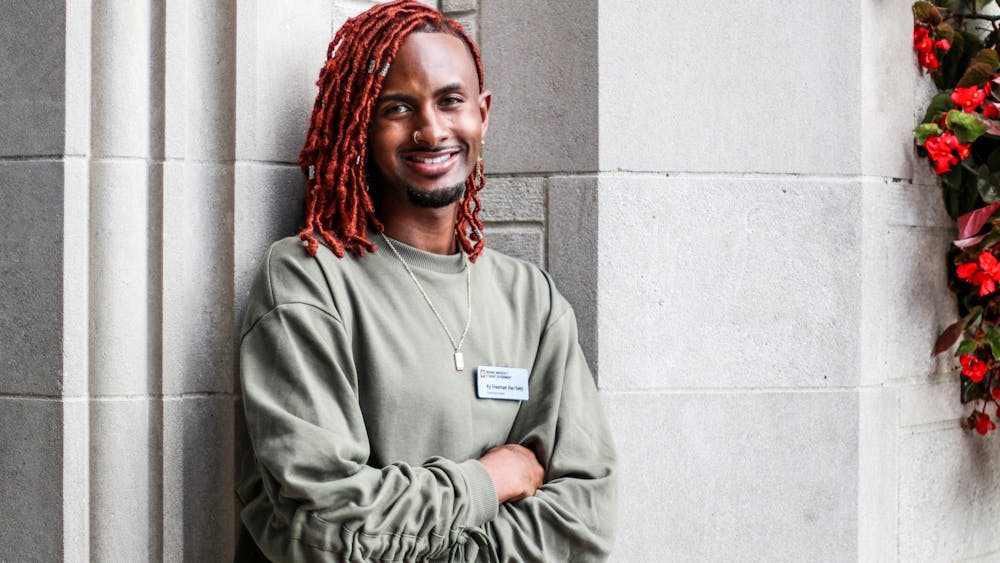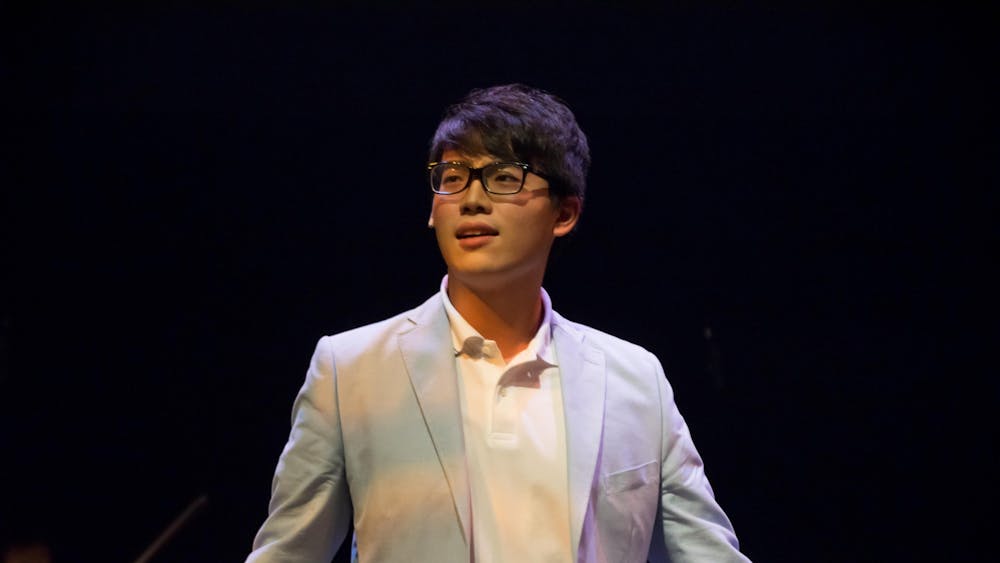When Gleb Alexeev thinks of Ukraine, he sees the sea.
It’s the Black Sea, just an arm’s length from his back door. Sometimes, he sees the sweeping sunflower fields, the faces of the tawny flowers tilted toward the sky. They sit next to expanses of lakes and green stretches of land.
His favorites, though, are the grape fields. They stretch to the horizon, he said, going on forever. But they’re just these neat rows of sticks, so you can see perfectly between the lines.
When Alexeev remembers his home, he thinks of the beauty and ease of his childhood summers.
Now it’s cold. The flowers are dead. And his home country is in flames.
On Nov. 21, 2013, Ukraine’s then-president Viktor Yanukovych announced he was going to abstain from signing an agreement that would have strengthened Ukraine’s ties with the European Union. The simple refusal set off a spiral of events that peaked in early 2014 with violent clashes. Dozens of people were killed, and Ukraine’s safety and stability were uncertain.
Now, half of the country is pushing for an alliance with the European Union, while the other half is encouraging a connection with Russia, IU history professor Padraic Kenney said. But at the core of the current problems, he said, is democracy.
“Civil rights matter,” Kenney said. “And the best way to have civil rights is to have a
democracy.”
That the citizens of the Ukraine are struggling to define a leader from a pool of possibilities, he said, suggests that they are moving toward that ideal.
Alexeev is divided. He’s from Ukraine but is Russian by blood. He was born in Odessa, about 300 miles south of Kiev, and was raised there, in what he calls the
“cultural hub” of Ukraine, until first grade.
Now, Alexeev calls Bloomington home.
“I’m a townie,” he said.
He has lived here since he was seven. In January, his parents made the move back to Ukraine. Back to where the protests, bloodshed and terror were just beginning to
swell.
***
Alexeev knows it’s dangerous where his family lives.
“My biggest worry is that it will actually escalate into a full-out war,” Alexeev said. “There’s a potential for more conflict.”
He’s a worrier already, he said, but his parents’ safety is always in the forefront of his mind. He doesn’t like to think about the “what ifs” and hesitated when asked about the worst that could happen.
“If things expand from Kiev into Odessa—” Alexeev trailed off and paused for a moment. “Even though it’s 300 miles away, that’s not as much of a distance as you think.”
The protests in Kiev have settled down, but on March 1, Russian troops moved into the Crimea region of Ukraine.
Kenney said he thinks the most violent of the protests will begin to dwindle soon.
He said he thinks a full Russian invasion is unlikely, but that even in the U.S., people should pay attention in case it does.
It’s not likely that the U.S. would get involved and send troops, but Russia is a nuclear state, and Ukraine has a sizeable army. It could be incredibly destabilizing for the world, Kenney said.
The U.S. in particular, he said, can’t afford the hit the economy would suffer.
“There are conflicts around the world that would affect us a little bit,” he said, “but this one would affect us a lot.”
***
Alexeev said he avoids the news — a habit he picked up from his mother, who doesn’t like all of the negative coverage — but it doesn’t scare him. Or it didn’t, at least, until he left home.
“I saw on the news these people that were burning tires and throwing Molotov cocktails,” he said. “Me, sitting on the couch and watching that, it wasn’t scary, because I was sitting with my family. But now that I’ve flown away, I’m like, ‘Crap. That’s all going on there without me. I don’t know anything.’”
Alexeev has habits now to deal with all of the news. It usually starts with browsing social media and seeing that someone has posted a link about Ukraine. He clicks the link calmly and reads.
Maybe, sometimes, there’s a hint of panic. So he calls his parents and makes sure they’re OK. He puts his phone down, shuts his computer and moves on with his day.
It’s kind of a routine now, he said. And the most important part of that routine is double — and triple — checking what he reads.
“The news that you guys get here is absolutely skewed to the point of disbelief,” he said of U.S. news coverage. “People have no idea how bad it is.”
This is in part because of the language used, he said. Journalists seem to use rhetoric that softens reality.
When the word “unrest” came up, he rolled his eyes and laughed.
“‘Unrest’ is a silly term,” he said. “As opposed to, ‘Oh, crap, there’s a civil war going on.’”
He’s desensitized, he said. All of the blood and gore is routine by this point.
But sometimes, he admits, there are tears. Those are his brothers fighting, after all, and they’re his brothers dying.
“People don’t even know what they’re protesting anymore,” he said. “It’s a revolution, but people don’t really know what they’re fighting for. It’s kind of gotten to the point where it’s crowd mentality ... you’re part of a mob, and you can’t stop.”
Kenney said it’s inevitable that these protests, like similar demonstrations, will yield
some dissatisfaction — people can’t achieve everything they want in revolutions.
“Even if they’re successful, they bring disappointment,” he said.
Despite his split nationality, Alexeev said he does not feel a tug-of-war when it comes to taking sides. He doesn’t really want Ukraine to lean toward the EU or Russia.
They need to let things settle before they get involved with anyone else, he said.
“I think it should be just them for a little while, just Ukraine.”
***
In many ways, Alexeev is like any other college
freshman.
His hair is cropped close to his head — “I lost a swimming bet” — he plays a handful of sports every season and misses his mom’s home cooking. He looks up to his dad and is rooting for the Dutch team to take home the 2014 World Cup trophy.
He has what he describes as a bad habit of over-apologizing.
But he also can’t drive home for the weekend. When he wants to see his parents, he sits in the wood-paneled billiards room in the Indiana Memorial Union and is thankful for the invisible connection that Skype provides, even with a seven-hour time difference. It’s usually quiet in the billiards room, barring the familiar sound of someone breaking a triangle of ivory. Perfect for video chat.
The last time he saw his parents was during winter break, and right now he doesn’t know when they’ll be together again. Only that it will be before summer. His brother, who’s 24 years old and lives in Indianapolis, is getting married before then.
Even before the riots began, he said, when he was enjoying his sunflowered summers, Alexeev knew Ukraine was in trouble. He wasn’t going to fool himself.
“It’s corrupt,” he said. “You can’t trust anyone. You should be cautious of anyone and
everyone.”
Even after emphasizing the country’s beauty, he repeatedly offered the advice, “Don’t visit.”
When Alexeev was a child, he knew a boy of about 6 years old who smoked and abused alcohol, just like his father did before him, Alexeev said.
When Alexeev was a boy, a mugger tried to kill him. He still has a scar from where the man missed his target and ended up stabbing him in the thigh with a Finnish fillet knife. When the mugger noticed passersby, he panicked and ran into the street. He was hit by a car and immediately killed.
“Talk about karma,” Alexeev said.
He was nonchalant about the entire situation. Stories like this have always existed around him, he said.
Alexeev has friends and family who are still in Ukraine. They’re his main source of truthful news, he said, and he’s not particularly worried about them.
“They have nothing to be afraid of, honestly,” he said. “They’re just kind of laughing. It’s a melancholy laughter, if you know what I mean. It’s like, you’re laughing at your pain. You laugh at the fact that the country is complete shit.”
Still, he loves his home.
“Say I got in a fight with my dad,” he said. “There’s tension, but it’s not like I would stop loving him just because I got in a fight with him. That’s how I feel about Ukraine. Just because there’s protests going on there doesn’t mean it’s all too shabby of a country. It has its upsides.”
He said he doesn’t know anyone specifically involved in recent protests in Independence Square in Kiev, but he recognizes the faces on the news as faces of his fellow countrymen. There will always be those people, he said, who want to get out and fight for their country.
“You don’t know what you’re fighting for,” Alexeev said of the young protesters. “You’re young. You’re inexperienced. You don’t know anything yet. I’m young. I’m inexperienced. Jesus.”
Kenney said at the core of this issue is democracy. More broadly, Europe is at the core.
“Europe can mean, and does mean, a certain amount of democracy and civil rights,” he said. “It also means greater prosperity. So at the core is
Europe.”
Both Alexeev and Kenney stressed the importance of consuming international news and paying attention to sources that span outside of the U.S. People need to educate themselves to understand the situation and its possible repercussions, they said. This is not a national crisis — it is a global one.
“Learn, and keep learning, because education is power,” Alexeev said.
The situation evolves daily, but as events progress, Alexeev’s mindset steadily falls from being relatively hopeful to doubtful. Just like his conservative Russian grandfather, he said.
“He believes there is no hope for Ukraine at all,” he said. “And I’m starting to believe that, as well. There may be hope for the country, but it’s extremely slow hope.”
A world away
When violence erupted in Ukraine in February, Gleb Alexeev was left to watch as crisis gripped his home

Get stories like this in your inbox
Subscribe





